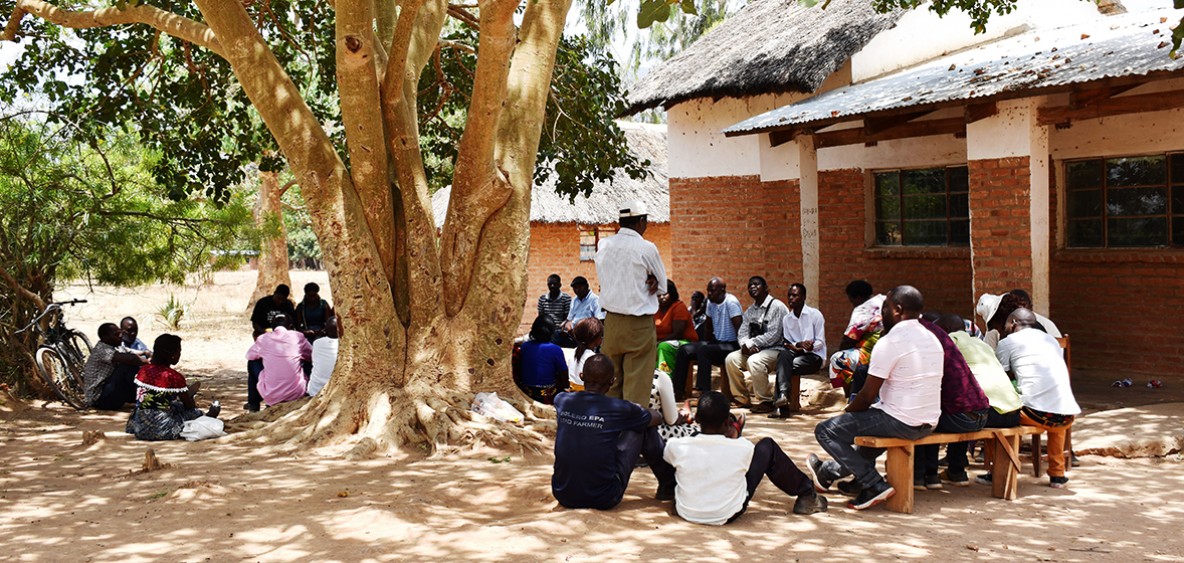
The FAO Land and Water Division (NSL), through its Integrated Landscape Management (ILM) team, joined efforts with the RFS programme to build capacity and share knowledge on scaling up and decision-support for integrated approaches to sustainable land management (SLM) and integrated natural resource management (INRM).
Sustainable Land Management (SLM) is a land management process developed in response to widespread land degradation and desertification. As land quality degrades, food and water become more insecure, poverty rises, and communities become more vulnerable. Rather than solely focusing on profit maximisation, SLM seeks to protect ecosystem function while maintaining the long-term productive potential of resources, their environmental functions and human well-being.
In May, the FAO team hosted the first of three webinars on Decision Support for Sustainable Land Management. The webinar focused on the importance of mainstreaming SLM to help decision-makers prioritise the management of natural resources along with other priorities, generating sustainability beyond the scope of a single project.
The first webinar was held virtually on the 5th of May 2021, streaming from Rome. The objective was to share approaches, experiences and tools necessary for enhancing evidence-based SLM decision support, focusing on using the DS-SLM Decision Support Framework (DSF) to mainstream and scale up SLM in national and subnational policies and key decision-making processes.
Representatives from all 12 country projects were present for the first training. During the training, the FAO team shared a tool for design mainstreaming strategies and country examples of mainstreaming in Uganda and Colombia.
In the coming months, there will be two follow-up webinars:
If you are interested in attending these webinars, please contact RFS FAO focal point Lilian Goredema.
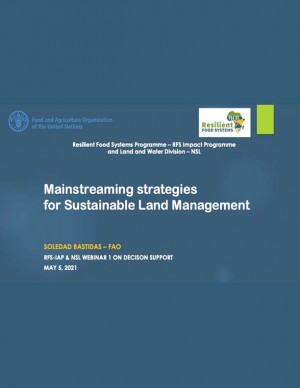
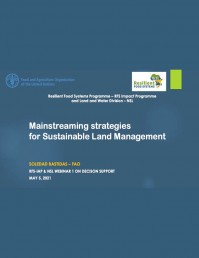
The objective of an SLM mainstreaming strategy is to define the mechanisms or the path for integrating and scaling up SLM into key decision-making processes (policies, finance, planning, education, local decisions) at national, sub-national and/or local levels in order to facilitate the implementation and scaling out of SLM practices.
This presentation, developed by FAO Land and Water Division in collaboration with RFS, shares an approach for mainstreaming and scaling up SLM/INRM into policies and key decision-making processes and a methodology for the design of SLM mainstreaming and scaling-up strategies. It provides an overview of what mainstreaming and mainstreaming strategies are, which decision processes should integrate mainstreaming strategies and how to apply the FAO SLM Mainstreaming Tool.
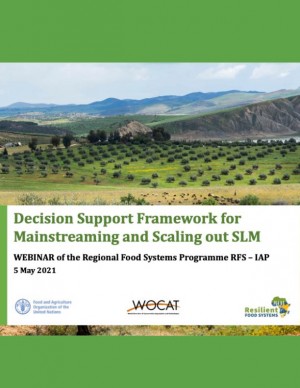
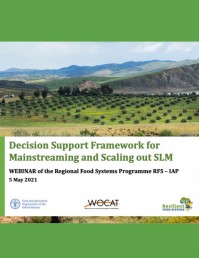
To combat land degradation worldwide, mainstreaming and scaling out SLM has to be based on evidence and informed decision-making at all levels. SLM is best achieved through a combination of effective SLM technologies at the landscape level, implemented via appropriate SLM approaches and supported by an enabling environment.
FAO and WOCAT, building on the former FAO-LADA (Land Degradation Assessment in Drylands) and DESIRE projects and relevant WOCAT experiences, have developed a methodological framework for Decision Support (DSF) for Mainstreaming and Scaling out SLM from national to local landscape levels. The framework, with its seven modules and different entry points, offers a detailed description of activities, tools, and methods that are available for use and adaptation by different countries to facilitate SLM decision-making.
Subscribe to our monthly newsletter to receive updates on stories directly from the field across all our projects, upcoming events, new resources, and more.